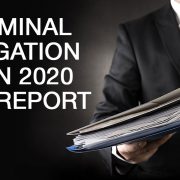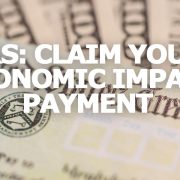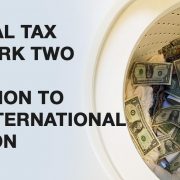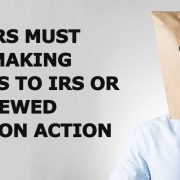5 Moves To Make Before Year End That Can Save You A Lot of Money on Your 2020 Taxes
On December 22, 2017, President Trump signed into law the 2017 Tax Cuts And Jobs Act. It’s been a good 30 years since the last time the Internal Revenue Code received such a major update.
Major Changes From The New Law Include:
Compressed And Lower Income Tax Rates For Individuals.
Increased Standard Deduction For Individuals
Elimination Of Personal Exemptions
Limitations of Deductibility Of Itemized Deductions including Mortgage Interest and State & Local Taxes.
Lower Corporation Tax Rates.
The Big Picture:
With many itemized deductions having disappeared by the 2017 Tax Cuts And Jobs Act and the higher standard deduction, less taxpayers will be itemizing deductions in 2020 but there is still significant tax planning you can do. Under these circumstances the key here is to accelerate deductions in 2020 and defer income into 2021.
Following are five year-end tax moves to make before this New Year’s Day:
- Give more to charity in 2020.
In addition to the usual dollar donations to charities, religious institutions and educational institutions, consider clearing your home of those unwanted household goods and clothing to give to charities. Many groups will accept these items even vehicles, with some even making arrangements to pick up them up from your home. You may also consider to donate stock or mutual funds that you’ve held for more than a year but that no longer fit your investment goals. The charity gets the asset to hold or sell, and your portfolio re-balancing nets you a deduction for the asset’s value at the time of gifting. Even better, you do not have to worry about capital gains taxes on the appreciation of your gift. Remember that if you take the standard deduction in 2020, you won’t get any tax savings from your charitable contributions made in 2020.
- Make the most of your home – mortgage interest.
Home-ownership provides a variety of tax breaks, some of which you can use by year-end to reduce your current year’s tax bill. Make your January mortgage payment by December 31st and deduct the mortgage interest on your 2020 tax return.
- Make the most of your home – property taxes.
Like prepaying mortgage interest, the same tactic will apply for property taxes; however, keep in mind that property taxes along with other state and local taxes will be deductible only up to $10,000.
- Pay your self-employed business expenses
If you are self-employed, you should accelerate payment of your business expenses in 2020. Recognizing these expenses in 2020 will provide you with a tax savings for 2020.
- Defer your income into 2021.
If you are a small business owner, consider delaying income until January 2021. So if you are chasing up some customers or clients to pay the bill you sent them a while ago, you might want to wait until January to get aggressive on collecting. Consider delaying the delivery of invoices for year-end jobs until January 2021. Small business owners should make sure they are benefiting from the deduction of 20% of their business income. If you are an employee, ask your boss to hold your bonus until January. Individuals should also consider putting more money into a tax-deferred workplace retirement plan in 2020 and hold off on selling assets that will produce a capital gain until 2021.
What Should You Do?
With not much time left in 2020 you will need to act quickly on those tax moves that are easy to accomplish to reduce your tax bill.
You know that at the Law Offices Of Jeffrey B. Kahn, P.C. we are always thinking of ways that our clients can save on taxes. If you are selected for an audit, stand up to the IRS by getting representation. Tax problems are usually a serious matter and must be handled appropriately so it’s important to that you’ve hired the best lawyer for your particular situation. The tax attorneys at the Law Offices Of Jeffrey B. Kahn, P.C. located in Orange County (Irvine), Los Angeles and elsewhere in California are highly skilled in handling tax matters and can effectively represent at all levels with the IRS and State Tax Agencies including criminal tax investigations and attempted prosecutions, undisclosed foreign bank accounts and other foreign assets, and unreported foreign income. Also, if you are involved in cannabis, check out what our cannabis tax attorney can do for you. Additionally, if you are involved in crypto currency, check out what a bitcoin tax attorney can do for you.











